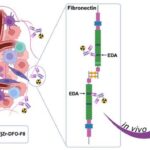
The University of São Paulo (USP) and the São Paulo Research Foundation (FAPESP) are making a groundbreaking debut at VivaTech 2024, one of Europe’s foremost technology and startup fairs held annually in Paris. Scheduled from June 11 to 14, this event serves as a global nexus for visionary technologies and entrepreneurial breakthroughs. USP and FAPESP’s participation marks a strategic milestone, as they bring Brazil’s most pioneering scientific enterprises and research initiatives to the international stage, spanning diverse domains such as health, agriculture, AI, climate science, and sustainability.
At the heart of their showcasing is the 100-square-meter exhibition space, purpose-built to facilitate dynamic interactions among researchers, startup founders, investors, and the wider public. This stand will be more than a display of innovation; it is an immersive platform that includes interactive demonstrations, virtual reality experiences, and engaging pitch contests that highlight Brazil’s unique ecosystem of scientific entrepreneurship. The presence of startups alongside academic experts represents a deliberate bridging of applied research with market-driven solutions addressing global challenges.
VivaTech 2024 will see USP and FAPESP emphasizing not only technology but also the socio-economic and geopolitical ramifications of innovation. This aligns with the fair’s broader agenda which, in 2025, intends to explore innovation through the prisms of economic impact, environmental stewardship, and social responsibility. With over 165,000 visitors in the previous year, the fair is an unrivaled arena for Brazilian institutions to increase their visibility and impact worldwide.
.adsslot_9pbJjFdWML{ width:728px !important; height:90px !important; }
@media (max-width:1199px) { .adsslot_9pbJjFdWML{ width:468px !important; height:60px !important; } }
@media (max-width:767px) { .adsslot_9pbJjFdWML{ width:320px !important; height:50px !important; } }
ADVERTISEMENT
Among the Brazilian startups exhibiting their innovations, some represent cutting-edge advancements with potential transformative impacts. For instance, IOZ Biotech is pioneering a viral platform utilizing genetically engineered Zika virus vectors capable of crossing the blood-brain barrier, enabling targeted delivery of therapies to the central nervous system— a feat that could revolutionize treatments for neurological disorders. Similarly, Carbon to Carbon Technologies has developed an electrochemical reactor that converts CO₂ into valuable molecules with a negative carbon intensity, presenting a dual solution for carbon capture and the creation of sustainable raw materials.
On the agricultural and environmental front, MOF Tech offers nanomaterials tailored for regenerative farming, contributing to soil health and sustainable food production, while Ideelab deploys peptide and protein-based bio-pesticides designed to combat pathogens threatening Brazil’s pivotal crops like soybeans and citrus. These technologies underscore Brazil’s commitment to leveraging biotechnology and green chemistry as key drivers of environmental sustainability.
FAPESP-backed startups bring equally impressive solutions to the showcase. Onkos is producing molecular assays for thyroid cancer diagnosis, already commercialized across 30 countries, enhancing early detection and patient prognosis globally. In the realm of advanced tissue engineering, 3D Biotech’s innovation in printing vascularized artificial tissues from patient-derived cells sets a new benchmark in personalized medicine and organ transplantation. Such technologies epitomize the convergence of bioengineering and regenerative medicine.
The academic dimension of USP’s participation is robust, featuring presentations from the university’s Centers of Excellence. Faculty will introduce pioneering research such as CAR-T cell therapies revolutionizing lymphoma and leukemia treatment by reprogramming patients’ immune cells to target cancer more effectively. Equally notable is the MapBiomas Atmosphere system, which integrates satellite data and environmental models to analyze land use and deforestation in the Amazon — vital for managing this critical biome amid escalating climate challenges.
A remarkable feature at the USP-FAPESP booth will be a multisensory Amazon Rainforest simulation developed by the Research Center for Greenhouse Gas Innovation (RCGI) in partnership with the Natura cosmetics company. Utilizing visual, auditory, and olfactory stimuli, the simulation offers attendees an immersive experience of this biodiversity hotspot, emphasizing the symbiosis of technology and nature preservation.
Further collaborative projects with industrial partners demonstrate USP’s commitment to energy transition and sustainable development. The “Avenir” tool, developed with TotalEnergies, employs anisotropic viscoelastic numerical inversion techniques to produce high-definition subsurface images, facilitating the identification of oil reservoirs in the complex pre-salt geological formations offshore Brazil. Concurrently, the Agri-PV System integrates photovoltaic energy generation with agricultural cultivation, showcasing a versatile land-use model that addresses climate adaptation and renewable energy demands.
In line with fostering a sustainable aviation future, USP and Acelen are developing biofuels derived from macaúba, a native Cerrado plant, which hold promise to replace fossil fuels in aviation and diesel production. Equally innovative are “intelligent forest probes” — miniature, low-cost sensors that collect environmental metrics crucial for biodiversity and climate science, highlighting the integration of Internet of Things (IoT) technologies in ecological monitoring.
On the urban mobility front, Eve Air Mobility, an Embraer spin-off, is presenting an electric vertical takeoff and landing (eVTOL) vehicle, optimized for zero emissions urban flight. Manufactured in São Paulo’s Taubaté facility powered by renewables, the aircraft forms part of a broader ecosystem including Vector, a sophisticated urban air traffic management software, and TechCare, a comprehensive support system, ready to redefine urban transport infrastructure.
The event will culminate in a high-stakes pitch contest where nine startups will present rapid-fire business proposals judged by panels inclusive of leaders from USP, FAPESP, and the governmental sector. Awards focusing on women-led innovation, global impact potential, and showcasing Brazil’s competitive edge in technology will spotlight exceptional ventures, incentivizing diversity and international collaboration.
Complementing the startup presentations, USP is hosting pivotal sessions including a keynote on “Strategies of the State of São Paulo for a Global Technology Hub,” featuring stripped-down discourses by top-state officials and university leaders. Academic sessions titled “Science and Innovation for a Sustainable Future” will cover essential topics such as climate science, artificial intelligence, electronic systems, optics for health sciences, and sustainable fuels, reflecting interdisciplinary synergy critical for future technological ecosystems.
This debut at VivaTech is the culmination of strategic international partnership building, initiated last November with USP delegations fostering alliances across French academic and industrial landscapes. The Research Center for Greenhouse Gas Innovation has been instrumental in orchestrating USP and FAPESP’s involvement, from concept to execution, underpinning Brazil’s ambition to emerge as a global powerhouse of science, technology, and sustainability-driven innovation.
In presenting an integrated showcase of applied sciences, startups, and cutting-edge research, USP and FAPESP embody a model of scientific excellence meshed with entrepreneurial vitality. Their presence at VivaTech advances a narrative of Brazilian innovation that is not only locally rooted but globally relevant, positioning the nation at the forefront of addressing some of the twenty-first century’s most pressing scientific and technological challenges.
Subject of Research:
Cutting-edge technologies in health, agriculture, sustainability, climate science, energy transition, and artificial intelligence.
Article Title:
USP and FAPESP Unveil Brazil’s Scientific and Technological Vanguard at VivaTech 2024
News Publication Date:
June 2024
Web References:
https://sites.usp.br/rcgi/events/vivatech/
https://vivatechnology.com/
Image Credits:
VivaTech
Keywords:
Technology, Artificial intelligence, Health and medicine, Sustainability, Sustainable energy, Climate change
Tags: AI and climate science advancementsbridging academia and industry.cutting-edge scientific enterprisesFAPESP at VivaTech 2024global challenges and market solutionsimmersive exhibition experiencesinteractive technology demonstrationsresearch and innovation collaborationsocio-economic impacts of innovationsustainability in health and agriculturetechnology and entrepreneurship in BrazilUSP participation in international startup fair



